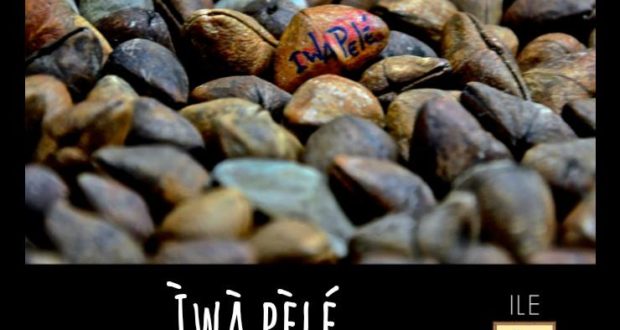(Ile Sankofa Sweden)
Ìwà pẹ̀lẹ́ is a concept that could be translated as “gentle and balanced character”. It is a behaviour expected of all initiates. The word Ìwà means “character” and it is believed that one’s character represents one’s ethical and moral behaviour. That is, one can have a good character or a bad character. Ìwà pẹ̀lẹ́, gentle character, is considered to be the best kind of character that one must aim for in life. It is when one is in physical and spiritual balance.
Ìwà pẹ̀lẹ́ is something one must develop during their life and is linked with one’s destiny, Ori. The word Ori also means “head” and refers to one’s spiritual consciousness. Within the Yoruba religious philosophy, it is believed that before descending to earth from heaven, one decides how their own destiny will become and will spend a lifetime accomplishing this. It is for this reason one might hear they must have a “good head” and work for physical and spiritual strength together with the Orisas, so that they will accomplish Ìwà pẹ̀lẹ́.
Although a person might have a good Ori, one’s spiritual destiny won’t be fulfilled if there is a lack of good character. To have a perfect balance between one’s destiny and one’s character and thus achieve Ìwà pẹ̀lẹ́, a person must have a number of good qualities. A person with a good character has great success in life, whereas a person with a bad character will lose everything even if they have a good destiny. It is for this reason elders who have had a lifetime of gathering wisdom, are expected to have a good character. It is of great importance that religious leaders possess Ìwà pẹ̀lẹ́, as they are seen as mentors.
Ìwà as a character is mentioned in the Odù Ifá literary corpus, in Ogbe Otura. The following story was told by Professor Wande Abimbola in his essay “Iwapele: The Concept of Good Character in Ifá Literary Corpus” (1975). Ìwà was the daughter of Sùúrù (patience), who himself was the son of Olódùmarè (the Supreme God), making Ìwà the grandchild of Olódùmarè. Ìwà was also the wife of Ọrúnmìlà, the Orisa of wisdom and divination. Ọrúnmìlà loved his wife very much, but he grew impatient with his wife, which in turn led to Ìwà feeling mistreated and running away from her husband. Ọrúnmìlà began looking around for her and when he found her in heaven, he begged for her to have patience with him and come back home. She told him she wouldn’t come back with Ọrúnmìlà, but would stay with him in spirit, a possible indication that she had now become an Egun (an ancestor who has passed on to the other side). She told Ọrúnmìlà to follow her advice and not do the things that she had told him not to do, to behave well, have a good character and to take good care of his family. Ọrúnmìlà’s behaviour would determine how his character and life would be.
The fact that Ìwà is the daughter of Sùúrù, patience, is significant for the meaning of this story. As with many stories from the Odù Ifá, this story aims to teach a message with the mistakes that the protagonist makes. For a person to have a good character, Ìwà pẹ̀lẹ́, one must also have patience, something Ọrúnmìlà lacked with his own wife. The saying “Sùúrù ni baba iwa” (Patience is the father of good character) is relevant to this story. This story also teaches that one might lose their good fortune, in this case a wife, when someone is critical and impatient. Even if relationships can be difficult at times, one must be responsible and take care of their partner, which Ọrúnmìlà failed to do. One must take as good care of their character as one should take care of their partner.
Ìwà pẹ̀lẹ́ does not only make life better, it is also necessary for one’s personal and spiritual development. Several other passages of the Odù Ifá literary corpus mention how to possess Ìwà pẹ̀lẹ́. One must possess several good qualities, such as being patient, honest and truthful, respectful and humble, but also have qualities such as having control over their body and mind or being a good listener. Disrespect, dishonesty, shamelessness, impatience and greed are seen as having a bad character. One must also respect their taboos and avoid breaking them. Finally, one must do good not only for themselves but also for others. A person with a bad character who does immoral things to others will be remembered negatively or become forgotten. A person who possesses Ìwà pẹ̀lẹ́ will be remembered positively by others.
FURTHER READING:
Abimbola, Wande (1975) “Iwapele: The Concept of Good Character in Ifá Literary Corpus”. In Wande Abimbola (ed.), Yoruba Oral Tradition: Poetry in Music Dance and Drama (Ibadan: University of Ibadan Press).
 Ọmọ Oòduà Naija Gist | News From Nigeria | Entertainment gist Nigeria|Networking|News.. Visit for Nigeria breaking news , Nigerian Movies , Naija music , Jobs In Nigeria , Naija News , Nollywood, Gist and more
Ọmọ Oòduà Naija Gist | News From Nigeria | Entertainment gist Nigeria|Networking|News.. Visit for Nigeria breaking news , Nigerian Movies , Naija music , Jobs In Nigeria , Naija News , Nollywood, Gist and more









